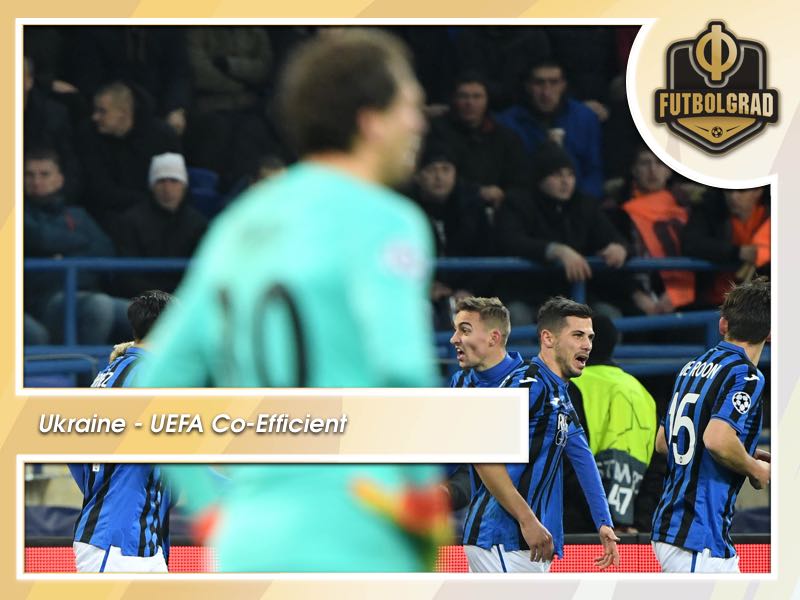Mark Temnycky –
One of European football’s most unknown concepts is the UEFA country coefficient. Fans have generally heard of the term, but very few are familiar with the nuances and practices associated with it and the soccer predictions that go with it. What does the term “country coefficient” mean? What is its purpose? How does it affect UEFA Champions League and UEFA Europa League qualification?
Officially known as the association club coefficients, these rankings “are based on the results of each association’s clubs in the five previous UEFA Champions League and UEFA Europa League seasons.” In other words, these rankings determine how many European spots will be granted to each UEFA member association for the following season.
Countries whose respective clubs have qualified for the Champions League and Europa League will have higher rankings than those who failed to qualify for the competitions. The rankings then tally the number of victories and draws earned by each club in the group stage, and additional points are awarded to the teams that advance to the Champions League and Europa League knockout stages. In other words, the further a country’s club advances in either competition, the more points they accumulate over time. The final standings then determine a country’s placement in the coefficient standings.

Watch European football live. Book your custom European football travel tour by visiting Nickes.com!
Based on these calculations, clubs hailing from the top five leagues (Spain, England, Germany, Italy and France) will naturally have a greater advantage than those from the other leagues. For example, Spain, England, Germany and Italy are automatically granted four Champions League places, meaning the clubs that finish in the top four spots of their respective leagues will automatically qualify for the Champions League.
Moreover, an additional three spots are allocated to each country for the Europa League, meaning Spain, England, Germany and Italy are granted seven European places each season (France, who receive six European places, have an even split between the Champions League and Europa League representation).
Due to the financial backing, broadcasting rights and investment in the Spanish, English, German, Italian and French leagues, it is unlikely these countries will fall outside of the top five coefficients. But what about a country that has a smaller audience and fewer investors?
Take, for example, Ukraine. The former Soviet republic is currently ranked as the tenth best league in Europe. While supporters of the Western European leagues may laugh, the Ukrainians still have many benefits. First, Ukraine receives the final automatic Champions League qualification spot, meaning the victor of the Ukrainian Premier Liha does not have to navigate through the rigorous Champions League playoffs (this is unlike teams from the more commonly known leagues such as Ajax or Olympiacos).

Shakhtar Donetsk failed to get out of their UEFA Champions League group, which has hurt Ukraine’s UEFA co-efficient standings. (Photo by Genya SAVILOV / AFP)
Second, the runners-up in the UPL advance to the third round of Champions League qualification, thus bypassing the preliminary, first and second rounds of qualification. Finally, the UPL are awarded three Europa League spots where one team automatically qualifies for the competition while the other two are placed in the second and third rounds of qualification, respectively. In other words, five European places are currently allocated to Ukraine.
It is undeniable that the current qualification structure favors clubs from countries with higher coefficients, where these constantly successful teams have greater financial backing than those from the lower leagues. Furthermore, teams from bigger countries like England now take the competition more seriously, Arsenal, which were covered on gooner news, for example, will certainly try to win the tournament.
Despite this point, the qualification structure for these competitions has still managed to work in its current form. Moreover, clubs that perform better in these competitions will naturally see their coefficient rise, thus it is not outside the realm of possibility that country coefficients change.
Unfortunately for Ukraine, it has been subject to negative changes. During the 2017/18 season, the UPL was ranked as the eighth-best league in Europe. Two years later, however, Ukraine dropped two places in the rankings as their teams failed to perform in the Champions League and Europa League. Given the UPL now sit in tenth, the Ukrainians are in danger of losing their automatic Champions League spot. Should they fall outside of the top ten leagues in Europe, they will surrender their automatic Champions League spot to one of their European rivals.
WANT MORE FOOTBALL? LISTEN TO THE FUTBOLGRAD PODCASTS RIGHT HERE!
Given the performances of Ukrainian teams in the Champions League and Europa League this season, there is a real possibility that Ukraine’s coefficient is in danger. During the start of the 2019/20 qualification process, Shakhtar Donetsk automatically qualified for the Champions League while Oleksandriya automatically qualified for the Europa League. Meanwhile, Dynamo Kyiv were placed in the Champions League’s third qualification round while Mariupol and Zorya Luhansk were placed in the Europa League qualification stages.
Of Dynamo, Mariupol and Zorya, only Dynamo advanced out of the qualification phase (although due to an unsuccessful Champions League bid, Dynamo were placed into the Europa League). Then, following the conclusion of the six-match group stage phase of both competitions, only Shakhtar remained in European contention (they have drawn Benfica in the Europa League’s Round of 32 following their exit from the Champions League).
In other words, of the five eligible teams from Ukraine for this season’s Champions League and Europa League, only one club remains in either competition. Thus, aside from Shakhtar, the Ukrainians have no other means of collecting points toward their country coefficient. While several Dynamo supporters would hate to admit it, the current fate of Ukrainian football in these European competitions rides on the success of their rivals.
Therefore, will Ukraine lose its automatic Champions League spot next season? Based on the current circumstances, this seems to be the case.
Mark Temnycky is an AIPS accredited journalist who covers the Ukrainian men’s national team and Ukrainian clubs competing in the UEFA Champions League and UEFA Europa League for the Futbolgrad Network. Follow him @MTemnycky




















COMMENTS